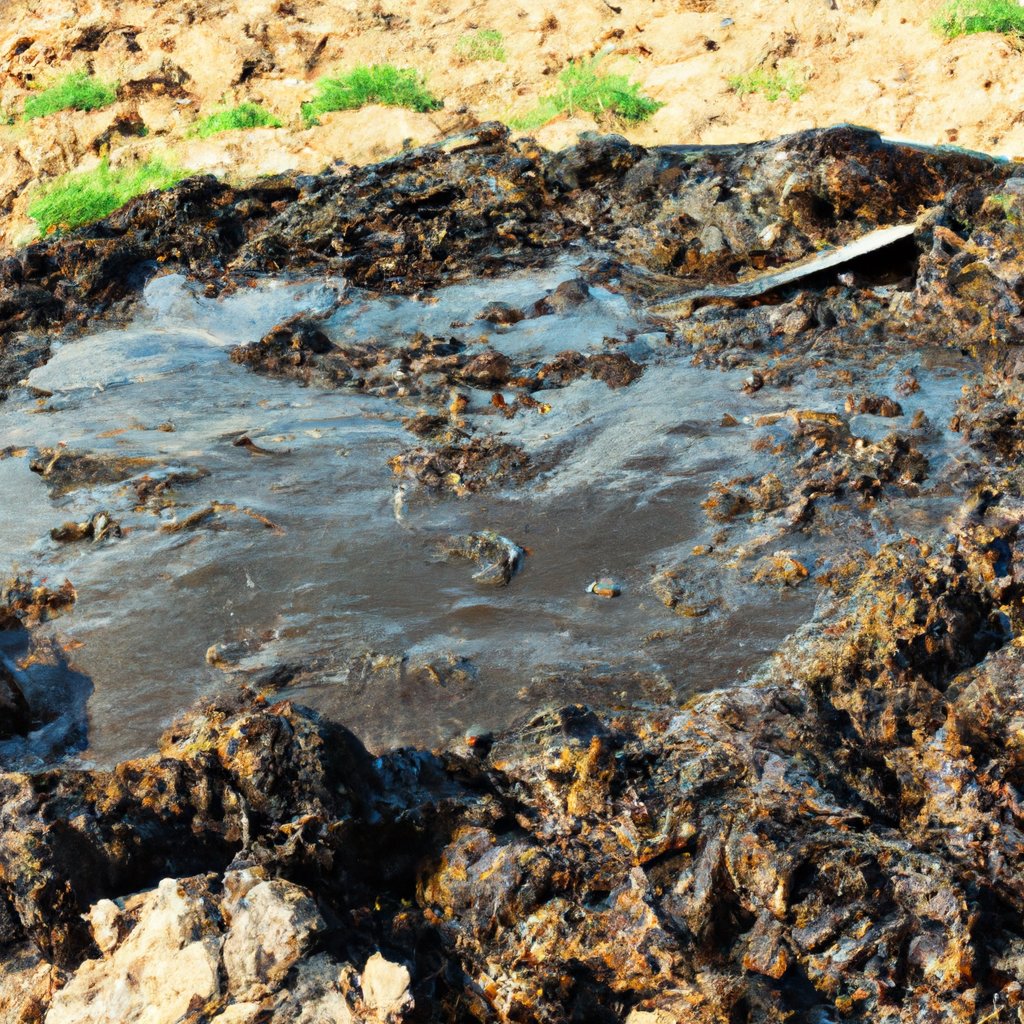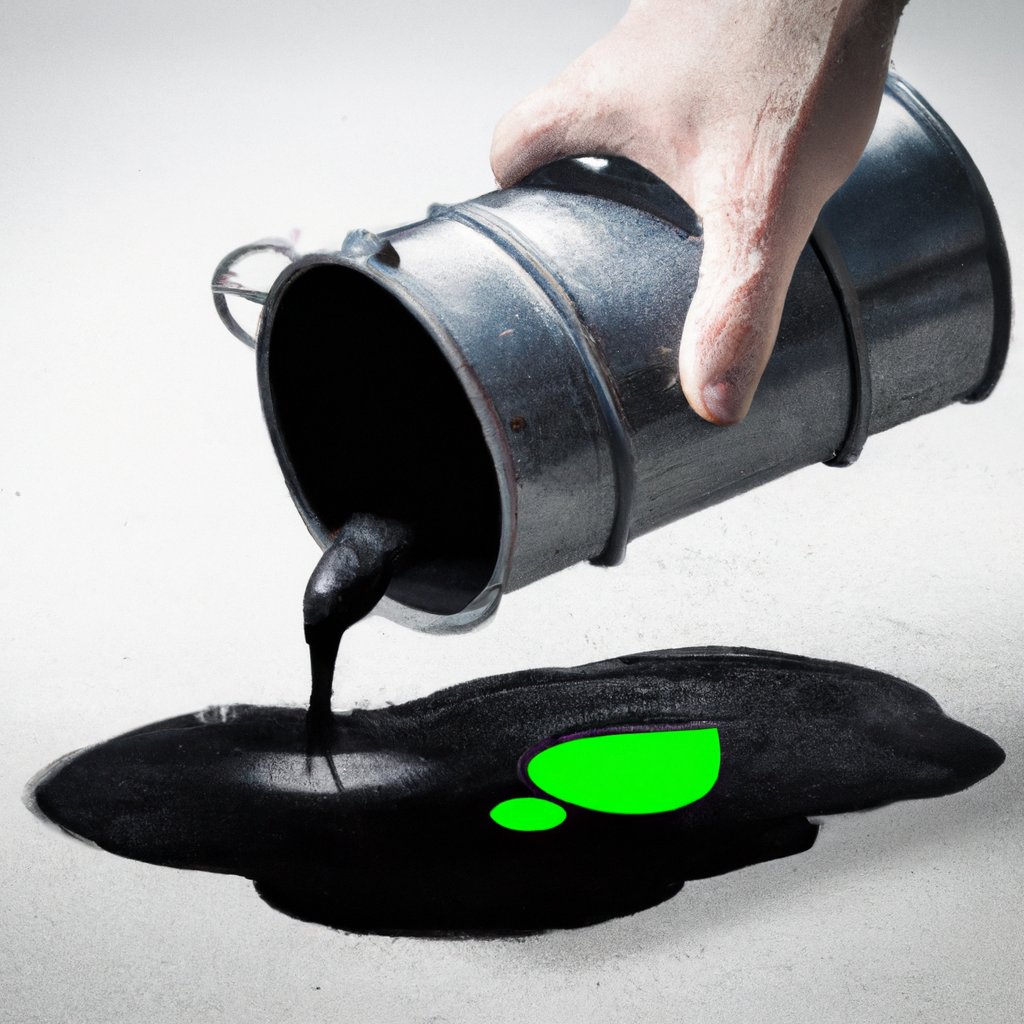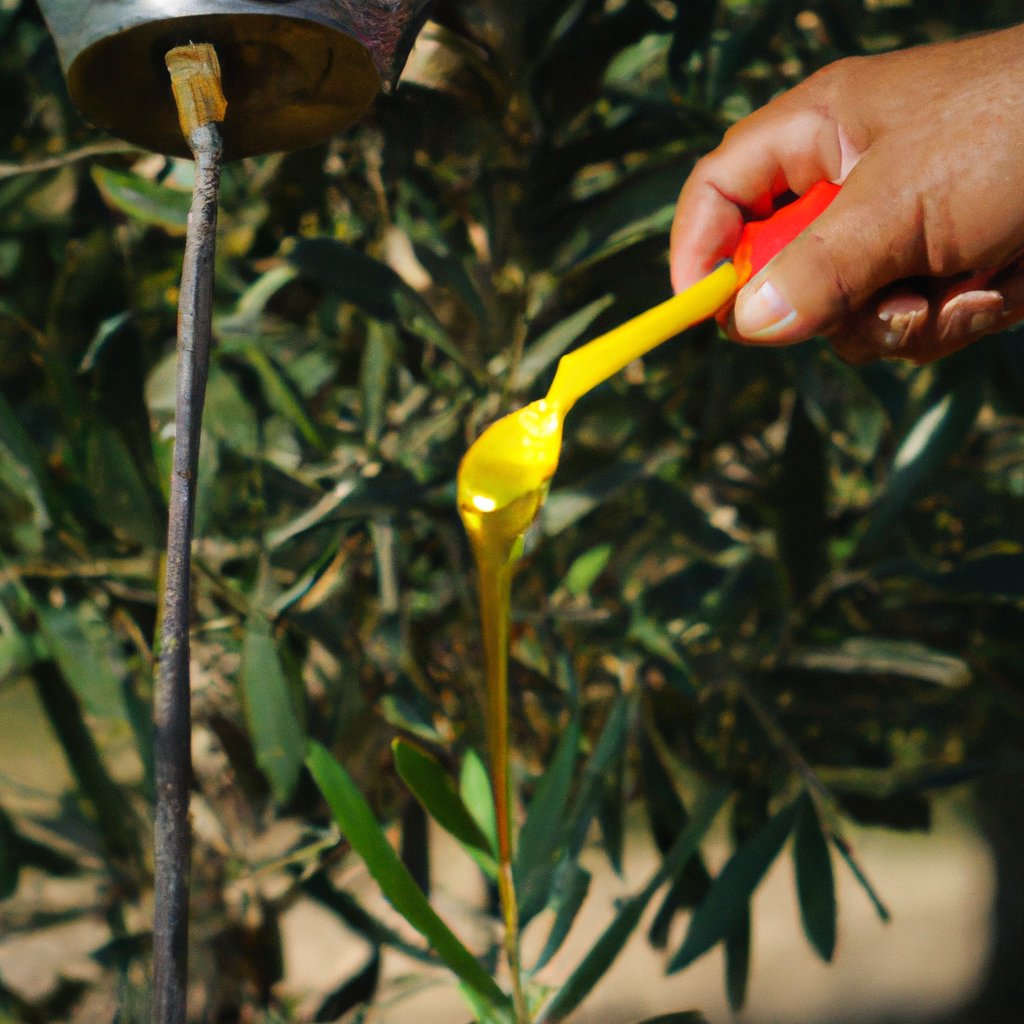- Home
- How to Dispose of Household Hazardous Waste
- Dumping Cooking Oil in the Ground
dumping cooking oil in the ground-Uncovering the Unseen Consequences of Illegally Dumping Cooking Oil
The legal implications of dumping cooking oil into the ground can be severe. Many countries have laws prohibiting this practice due to its environmental impact - contamination of water, soil, and the air are just a few of the potential results.
For instance, in the United States, discharging grease into sewers and waterways is a violation of the Clean Water Act, with possible fines of up to $50,000 per day. Similarly, in Canada, the Fisheries Act imposes penalties for releasing pollutants into fish-bearing waters.
It is crucial that individuals understand the legal implications involved before deciding to dump cooking oil in the ground. Aside from the environmental damage caused by this type of disposal, it can also lead to costly penalties.
Fortunately, there are alternative ways to dispose of cooking oil that are not only cost-effective but also more environmentally friendly. This includes recycling services offered by local governments or private businesses, as well as simple strategies like straining the oil and disposing of it in sealed containers in trash cans.
By taking responsibility and making conscious decisions, individuals can help protect both the environment and their personal finances.
Overview of the potential impacts of dumping cooking oil in the ground
Disposing of cooking oil in the ground can have serious implications to the environment, with adverse effects on both soil and aquatic ecosystems. The oils can seep into water sources, potentially leading to contamination of drinking water, as well as damage to soil fertility which in turn can have a detrimental effect on flora and fauna living in the impacted area.
Additionally, oil pollution can lead to atmospheric contamination caused by an increase in toxic gases that could be hazardous to human health. It is important to take these potential impacts into consideration when looking at legal implications related to dumping cooking oil.
Overview of laws and regulations related to dumping cooking oil on the ground
Dumping cooking oil on the ground is a serious environmental hazard as it has the potential to cause water contamination, soil degradation, and air pollution.
This can in turn lead to negative impacts on public health and safety, so it is important to be aware of applicable laws and regulations regarding the disposal of cooking oil in your area. In many countries, dumping of cooking oil is illegal and punishable by fines or even imprisonment under certain circumstances.
It is therefore important to ensure that all cooking oil waste is disposed of properly, either through collection services provided by local authorities or through appropriate waste management facilities. Violation of the relevant regulations regarding the disposal of cooking oil will not only risk harm to the environment but may also result in legal action taken against the responsible parties.

Explanation of how dumping cooking oil can affect the environment
Unregulated dumping of cooking oil can have a devastating impact on the environment, negatively affecting air and water quality, biodiversity, and animal habitats.
When not disposed of properly, this cooking oil can contaminate soil and seep into water sources, leading to an influx of algae growth, reduced oxygen levels, and aquatic life death. Furthermore, if released directly into the ground it can enter the food chain and threaten both human and animal health.
Additionally, it can cause an increase in pest populations and spread diseases precipitating sickness. To prevent this environmental damage, it is important to adopt proper disposal practices such as recycling the oil with a certified company or disposing of it at an approved facility.
For these reasons, we must remain vigilant about our disposal practices to protect our environment for generations to come.
Potential legal repercussions for individuals and businesses who dump cooking oil
Dumping cooking oil in the ground is a practice that is strictly prohibited. Individuals and businesses alike can face severe penalties for breaking this law. Depending on the jurisdiction, individuals may be subject to fines and even jail time for the disposal of cooking oil in the ground.
Furthermore, businesses found in violation of this law can have their licenses suspended or revoked, and they are liable for any damage caused by the pollution including loss of vegetation and aquatic life, as well as any related clean-up costs required by the government.
It is essential that all organizations comprehend the potential risks associated with the illegal disposal of cooking oil and take the necessary steps to ensure compliance with applicable regulations.
dumping cooking oil in the ground is a practice that is strictly prohibited
Individuals and businesses alike can face severe penalties for breaking this law. Depending on the jurisdiction, individuals may be subject to fines and even jail time for the disposal of cooking oil in the ground.
Furthermore, businesses found in violation of this law can have their licenses suspended or revoked, and they are liable for any damage caused by the pollution including loss of vegetation and aquatic life, as well as any related clean-up costs required by the government.
It is essential that all organizations comprehend the potential risks associated with the illegal disposal of cooking oil and take the necessary steps to ensure compliance with applicable regulations.
Disposing of cooking oil is a necessity in order to prevent its hazardous effects on the environment. It should not be placed down the sink, toilet, or into local water systems as it can cause contamination and damage ecosystems.
The best option for disposing of cooking oil is to take it to a local hazardous waste collection site or recycling center that specializes in oil collection. Additionally, it is essential to remember to recycle the empty containers that held the cooking oil when possible. Proper disposal is necessary in order to maintain a safe, healthy environment for all.
Ways to reduce the amount of cooking oil used and reused
The use of cooking oil can have a serious environmental impact if it is not managed responsibly. To limit the amount of oil consumed and reused, we recommend following these steps:
- Only use the necessary amount of oil needed for the dish being cooked;
- Strain and filter the oil after every use using a cooking oil filter to remove any food particles;
- Use an oil thermometer to ensure the oil does not get overheated;
- Reuse the cooled and strained oil whenever possible;
- Always discard used cooking oil in a sealed container at a designated waste disposal site; and finally,
- Educate others on proper cooking oil disposal. By incorporating these practices into everyday life, people can take action to reduce the amount of cooking oil used and increase awareness about its responsible disposal
Resources for finding locations to properly dispose of oil
Complying with local regulations when disposing of used cooking oil is essential to avoiding costly fines or other penalties.
Many city and county government offices can provide guidance on authorized locations for proper cooking oil disposal, as can recycling centers and hazardous waste facilities.
It is also possible to find organizations that specialize in cooking oil disposal online, which can often provide additional resources regarding approved disposal sites and the correct steps to take when disposing of cooking oil.
Taking the time to consider these resources and following the appropriate procedures will help ensure that cooking oil is disposed of safely and legally.
How to contact local authorities for assistance in disposing of oil responsibly?

Disposing of cooking oil properly is an important responsibility for anyone using it for frying or baking. Dumping cooking oil into the ground, sewers, or drains is never legally permissible – not only does this harm local ecosystems, but it can also cause water contamination, corrosion to pipes and pumps, and excessive foaming in wastewater treatment systems.
To ensure that you are disposing of it responsibly, contact your local authorities to discover what services or options they have available. In addition, some communities have programs in place to help reduce food waste while offering free or low-cost oil disposal. Taking these steps today will help protect the environment while ensuring that everyone can benefit from a healthier, safer future.
FAQ
Will cooking oil breaks down in the soil?
Cooking oil does not break down easily in the soil. It is a non-renewable resource composed of long carbon chains and fatty acids, which are not naturally occurring in many environments.
This can lead to soil contamination if large amounts are released into the environment. When cooking oil is released into the soil, it binds to organic materials such as clay or silt, which prevents its degradation and further contaminates the environment.
If cooking oil accumulates from repeated releases, it can cause lasting damage to local ecosystems and affect the productivity of the soil. To prevent this kind of environmental damage, it is important to dispose of used cooking oil responsibly and make sure that it is properly recycled or otherwise disposed of.
What happens if you dump cooking oil on your plants?

When dumping cooking oil on your plants, it can cause a number of negative impacts. Firstly, the oil is likely to form an impermeable layer that will prevent water from passing through effectively. This could potentially lead to waterlogging, which would deprive the plant's roots of oxygen and potentially kill the plant or stunt its growth.
Additionally, if not cleaned up, any remaining oil may attract insects such as ants or cockroaches which could further damage or even destroy your plants. Furthermore, as the oil decomposes, it could also create a toxic environment for the soil-dwelling organisms which are crucial in providing nutrients for the plants.
Therefore, while dumping cooking oil on plants may not appear to be harmful on the surface, it can be extremely damaging to the health of plants in both the short and long term.
Can You Compost Cooking Oil and Grease?
Cooking oil and grease can be composted, but it is important that they are handled correctly in order to ensure healthy compost and avoid any potential problems with odor or pests. When disposing of these items, it is best to allow them to cool first and then strain them into a container such as a carton or can before they are added to the compost pile.
Additionally, only small amounts of cooking oil and grease should be added at a time, and the additions should be spread throughout the active compost layer. This will help reduce the likelihood of unpleasant odors and provide essential nutrients for microorganisms that break down organic matter.
Finally, it is important to cover all additions to the compost pile with layers of soil and other organic materials so that the oil and grease don’t attract pests or become exposed to air. If done correctly, adding cooking oil and grease to the compost pile can provide additional nutrition to the compost and promote a healthier and more balanced end product.
Can you dump vegetable oil in the ground?
Disposal of used vegetable oil in the ground should not be an option. Vegetable oil contains a number of contaminants, including hazardous materials such as heavy metals, bacteria, and nutrients that can contaminate soil and water, as well as harm plants and animals.
If large amounts of used vegetable oil are disposed of in the ground, there is a risk of leaching — when the vegetable oil seeps into nearby streams and ponds. This can create ecological imbalances such as altering the pH levels of aquatic ecosystems that can be detrimental to existing wildlife populations. As a result, it is important for those wishing to dispose of used vegetable oils to do so responsibly, either through proper recycling or disposal procedures.
What happens if you pour oil down the sink?
Pour oil down the sink, and it immediately creates a serious risk to your plumbing system and the environment. The grease and oil will stick to the inside of your plumbing pipes, creating clogs that can lead to water backing up in the sink.
If left unchecked, this could lead to significant repair costs as well as an additional environmental hazard as these chemicals move through the sewage system and potentially into nearby waterways. It is important to dispose of used cooking oil in a responsible manner by pouring it into a sealed container and disposing of it at a designated collection facility or on-site receptacle. Doing so helps prevent obstruction of drains, contamination of our water, and unnecessary expenditure on costly repairs.
What is the most environmentally friendly way to dispose of cooking oil?
The most environmentally friendly way to dispose of cooking oil is to filter it and reuse it as a base for biodiesel fuel. Cooking oil can be recycled into biodiesel using a simple home-based biodiesel processor, which uses heat and pressure to convert triglycerides present in the oil in to methyl esters and glycerin.
This process requires careful handling and safety precautions, however, as biodiesel production produces fumes that may be toxic if inhaled. Once converted into biodiesel, the fuel can then be safely and effectively used as an alternative energy source. Alternatively, contaminated cooking oil can be disposed of at designated waste centers, where it will be filtered, stabilized, and responsibly disposed of or recycled.
dumping cooking oil in the ground-conclusion
The improper disposal of used cooking oil has serious environmental and health consequences, as it can contaminate groundwater and harm plant and animal life in the affected area.
Therefore, it is important to ensure that used cooking oil is disposed of properly. In most jurisdictions, dumping cooking oil into the ground is illegal and can result in fines or other penalties.
The best course of action is to take the used cooking oil to an approved collection facility or recycling center where it can be properly disposed of and recycled responsibly. Being mindful of local laws and regulations when disposing of used cooking oil is essential for protecting the environment and avoiding potential legal repercussions.
More about how to solidify cooking oil for disposal